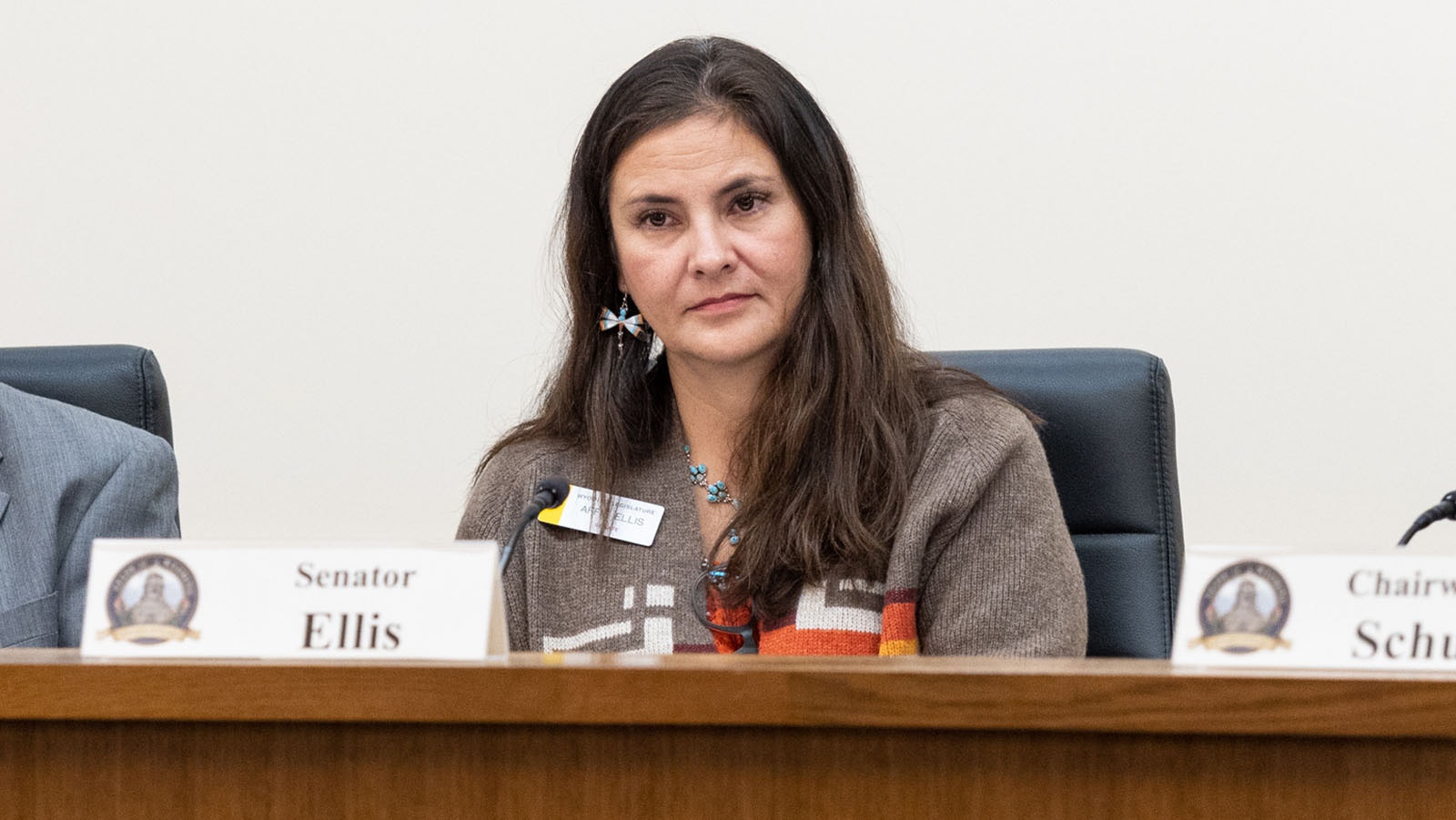Two Wyoming legislative committees approved companion bills Wednesday that would codify and tweak a state version of the Indian Child Welfare Act.
The act is a 1978 federal law that lets American Indian tribes intervene in child-custody cases to keep native children within their tribal communities.
But the U.S. Supreme Court now is scrutinizing the law after challengers questioned whether it discriminates racially against non-native families hoping to foster or adopt native children, and whether the federal law oversteps states’ rights to make their own family law.
While the high court should have a decision on the law’s constitutionality by June, some Wyoming lawmakers seek to adopt a state version of the federal law before that final decision emerges.
‘Severely Mistreated’
Sen. Affie Ellis, R-Cheyenne, told the Senate Labor, Health and Social Services Committee on Wednesday that she seeks to codify a Wyoming version of the federal law to preserve Indian tribes’ sovereignty and involvement in custody cases involving tribal children.
The Northern Arapaho tribal government voiced its support for Ellis’ bill, Senate File 94, and Ellis said the Eastern Shoshone Tribe supports it as well. Both are Wyoming-based Indian tribes occupying the Wind River Indian Reservation.
SF 94 cleared the Senate committee unanimously, advancing it to the Senate floor.
The aye came after Ellis testified regarding the efforts made by both federal and state government entities throughout American history to forcibly assimilate American Indians into nonnative culture.
Ellis said both her parents, as native children, attended boarding schools that sought to assimilate them.
“My mother … was severely mistreated and, quite honestly Mr. Chairman, I have difficulty even talking about her stories,” said Ellis.
Ellis described the bill as an attempt to preserve tribal culture through child-raising and uphold each tribe as a sovereign entity with control over the fate of its child members, biological children and children who are eligible to be tribal members.
The bill now is being contemplated in the Wyoming Senate.
‘Jumping The Gun’
In another room nearby, House Bill 19 passed the House Labor, Health And Social Services Committee.
HB 19 is companion legislation that would establish a task force – including custody attorneys and delegates from both tribes and legislators – to vet Indian Child Welfare Act’s issues and create a state version of the law.
Wyoming Gov. Mark Gordon’s tribal relations policy advisor Kit Wendtland told the two committees that Gordon supports both bills.
The Eastern Shoshone Tribe’s government did not voice its approval for the task force bill, and has opposed it in the past, saying it would rather codify ICWA as soon as possible – as SF 94 proposes – without creating the task force like HB 19 proposes to do.
The task force bill’s proponents said even if Wyoming codifies the federal law, the task force still could make future improvements to it.
Rep. Ben Hornok, R-Cheyenne, was the only committee delegate to vote against the bill, saying the state is “jumping the gun” since it does not yet know which direction the Supreme Court will take.
“It seems like this would be very effective after we know what the Supreme Court is going to do,” said Hornok. “It will take some time to figure out how we want to approach this as a state.”
Legal, Discriminatory Or Commandeering?
Hornok likely was referring to the Supreme Court’s ability to arrive at three very different outcomes in its ICWA ruling:
• If the Supreme Court declares that ICWA racially discriminates against non-native foster and adoptive parents, then a state ICWA law also could be declared unconstitutional.
• If, on the other hand, the Supreme Court declares that ICWA merely violates states’ rights, Wyoming would be able to craft its own ICWA law.
• Thirdly, the Supreme Court could uphold the ICWA law, which Wyoming already is following without its own version in place.

‘I Had This Exact Situation’
House Labor Committee Chair Rep. Dan Zwonitzer, R-Cheyenne, voted to advance the bill to the House floor, but indicated that he’s had a brush with ICWA in his personal life.
“I think many of you who are here are well aware that I had this exact situation over a year, two years ago,” said Zwonitzer. “I’m very familiar with ICWA and the changes needed.”
Zwonitzer in a text to Cowboy State Daily declined to give an interview on his experience with ICWA.





